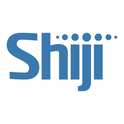And, in the ever-evolving landscape of hotel technology, I can safely say, Property Management Systems are experiencing a renaissance, reasserting their pivotal role at the core of the hotel tech ecosystem. As we delve deeper into the digital transformation era, the PMS has transitioned from an operational product that almost lost its way to a central platform of integration, and intelligence in hospitality management.
Historically, PMS solutions were back-office systems, primarily focused on basic functions like roommanagement, and billing. When when reservations switched to online, PMS tech couldn’t keep up, being on-premise and built on legacy technology they couldn’t deal with the influx of new reservations, rapid rate management, and updating the various reservation channels.
As a result, CRS solutions, channel managers, and a myriad of other solutions had to be built to care for this.
Some forecasted that PMS tech would eventually disappear and get replaced with other solutions. But the advent of better systems, online interfaces and the need for stronger security (amongst other others) have catapulted the PMS back into the spotlight. Today, a modern PMS is not just a system for managing rooms and rates; it's the nerve center of a hotel's technological infrastructure, facilitating seamless interaction between various software solutions and service platforms.
The resurgence of PMS as a central figure in hotel tech is driven by several key factors:
1. Integration Capabilities
The concept "API first and API everything" had to be a core part of the PMS. Any platform at the center of a company's business needs to be ready to integrate and play nice with other systems. We had funded a start-up called SnapShot Travel in the mid 2010s and the whole goal was to create open APIs – it was very clear that the future of PMS technology was open integrations, securely managed of course.
This emphasis on a forward-thinking, API-centric design philosophy was radical only a decade ago, but today aligns with the industry's move towards more agile, scalable, and interoperable tech solutions, making it an essential consideration for hotels aiming to stay at the forefront of hospitality innovation.
2. Data Centralization and Analytics
In the data-driven hospitality sector, PMS solutions serve as the primary repository of guest information and operational data. Advanced PMS platforms leverage this data through built-in analytics tools, enabling hoteliers to gain insights into guest behavior, preferences, and revenue trends and strategies. And building strong guest profiles in a single hotel or across multiple hotels. Being able to recognize guests, know that they have been there before, know how much they’ve spent with the hotel so the system becomes a tool to facilitate the work of associates to deliver a great guest experience.
3. Cloud Technology
The shift towards pure cloud-based PMS solutions has been a transformative development, bringing the advantages of scalability, accessibility, and cost efficiency. Unlike hybrid models that mix cloud and legacy technologies, true cloud PMS platforms are designed to leverage the full potential of mobility. These platforms enable real-time data synchronization and remote access, empowering hotel staff to manage operations from anywhere. This capability not only enhances guest services but also significantly boosts operational agility.
4. Enhanced Guest Experience
The centralization of guest data in the PMS allows for a more personalized and engaging guest experience. From mobile check-in and room selection to customized in-stay services and post-departure engagement, the PMS enables hotels to create a seamless and memorable experience for guests, fostering loyalty and repeat business. With the move to the global single guest profile at the center of the hotel operation the hyper-personalisation possibilities are limitless. It provides hotels with the capability of offering a true digital guest journey.
5. Security and Compliance
With the increasing importance of data privacy and security, modern cloud-based PMS platforms are equipped with robust security measures and compliance protocols to protect sensitive guest and operational data. This focus on security not only safeguards the hotel's reputation but also builds trust with guests. Privacy has been a hallmark of the hospitality industry for centuries, to achieve this we needed a much more robust platform that can deal with increased data exchange in a secure environment.
The re-emergence of PMS as the cornerstone platform of hotel technology reflects its critical role in navigating the complexities of the modern hospitality landscape. With its enhanced integration capabilities, data-enriched approach, cloud adaptability, focus on guest experience, and commitment to security, the PMS is not just back in the center of hotel tech; it's leading the charge towards a more integrated, intelligent, and guest-centric future in the hospitality industry.

